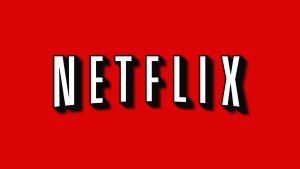
Zero-rating has been around for a while. T-Mobile first started using zero-rating in 2014 when it provided its ‘Music Freedom’ plan that provided free streaming music that didn’t count against cellular data caps. This highlights how fast broadband needs have grown in a short time – but when data caps were at 1 GB per month, music streaming mattered.
T-Mobile then expanded the zero-rating in November 2015 to include access to several popular video services like Netflix and Hulu. AT&T quickly followed with the first ‘for-pay’ zero-rating product, called FreeBee Data that let customers (or content providers) pay to zero-rate video traffic. The AT&T plan was prominent in the net neutrality discussions since it’s a textbook example of Internet fast lanes using sponsored data where some video traffic was given preferential treatment over other data.
A few of the largest cable companies have also introduced a form of zero-rating. Comcast started offering what it called Stream TV in late 2015. This service allowed customers to view video content that doesn’t count against the monthly data cap. This was a pretty big deal at the time because Comcast was in the process at the time of implementing a 300 GB monthly data cap and video can easily push households over that small cap limit. There was huge consumer pushback against the paltry data caps and Comcast quickly reset the data cap to 1 terabyte. But the Stream TV plan is still in effect today.
What’s interesting about the Comcast plan is that the company had agreed to not use zero-rating as part of the terms of its merger with NBC Universal in 2011. The company claims that the Stream TV plan is not zero-rating since it uses cable TV bandwidth instead of data bandwidth – but anybody who understands a cable hybrid-fiber coaxial network knows that this argument is slight-of-hand, since all data uses some portion of the Comcast data connection to customers. The prior FCC started to look into the issue, but it was dropped by the current FCC as they decided to eliminate net neutrality.
The big cable companies have to be concerned about the pending competition with last-mile 5G. Verizon will begin a slow roll-out of its new 5G technology in October in four markets, and T-Mobile has announced plans to begin offering it next year. Verizon has already announced that they will not have any data caps and T-Mobile is also unlikely to have them.
The pressure will be on the cable companies to not charge for exceeding data caps in competitive markets. Cable companies could do this by eliminating data caps or else by pushing more video through zero-rating plans. In the case of Comcast, they won’t want to eliminate the data caps for markets that are not competitive. They view data caps as a potential source of revenue. The company OpenVault says that 2.5% of home currently exceed 1 TB in monthly data usage, up from 1.5% in 2017 – and within a few years this could be a lucrative source of extra revenue.
Comcast and the other big cable companies are under tremendous pressure to maintain earnings and they are not likely to give up on data caps as a revenue source. They are also likely to pursue sponsored video plans where the video services pay them to provide video outside of data caps.
Zero-rating is the one net neutrality practice that many customers like. Even should net neutrality be imposed again – through something like the California legislation or by a future FCC – it will be interesting to see how firmly regulators are willing to clamp down on a practice that the public likes.